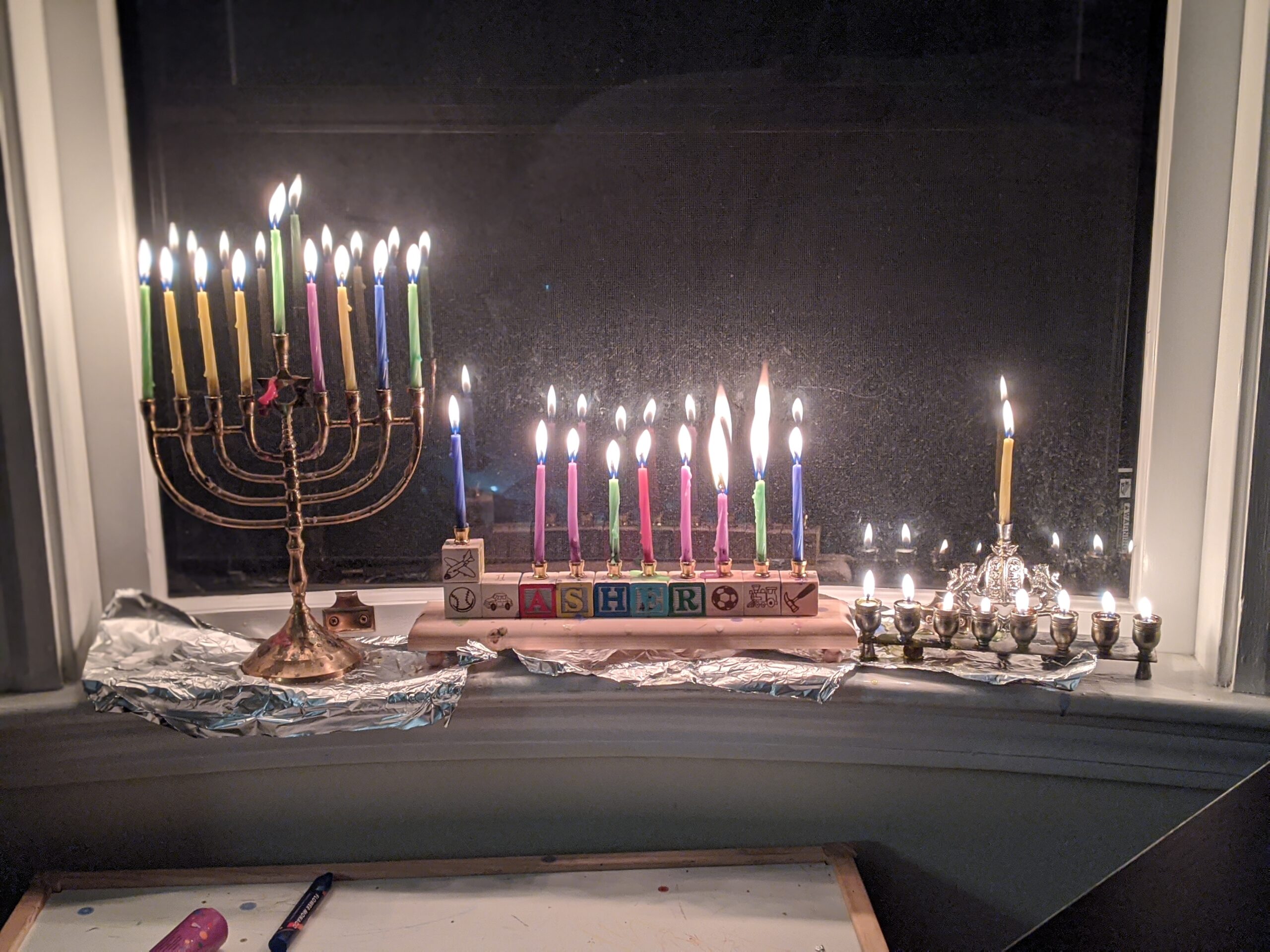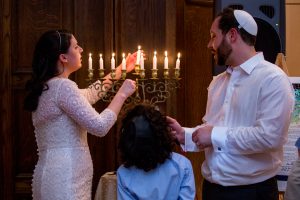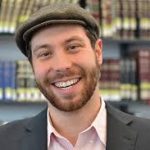Parenting Dancing in the Darkness

Chanukah is our festival of lights—a celebration of flame, fried food, and family. What a joy to be together with loved ones (perhaps this year on Zoom) and to mark the victory of light over darkness.
This is what the holiday is about—we watch candles bravely burn through long opaque nights, remember an improbable military victory, and slowly become aware that the days will soon get longer. Help is on the way, even if it is just a glimmer over an imposing horizon. And this year, at the close of 2020, we need to feel the growing light more than ever.
Life is rich with paradox, particularly at these seasons of transition. While Chanukah seems to be overtly about light, it interestingly focuses our attention on darkness. The traditional time for lighting candles is at dusk. We light our candles not when the days are lengthening, but just before when days are growing a bit darker. Chanukah’s solstice celebration casts our eyes on the impenetrable darkness of the winter sky.
Hebrew College’s Parenting Through a Jewish Lens course addresses this seeming contradiction directly in a session entitled “Parenting For Responsibility.” It includes this story from Bereshit Rabba:
“And God said to Abraham: ‘Go from your land, your birthplace, and your father’s house. . . .'” (Genesis 12:2). To what may this be compared? To a person traveling from place to place who saw a palace in flames. They wondered: “Is it possible that the palace has no owner?” The owner of the palace looked out and said, “I am the owner of the palace.” So Abraham said, “Is it possible that the world lacks a ruler?” God looked out and said to him, “I am the ruler, the Sovereign of the universe.”
Rabbi Sir Jonathan Sacks of blessed memory, explains this midrash in one way:
Abraham’s bewilderment is clear. This sensitive human being gazes at a brilliantly structured universe, a splendid piece of art. He is overwhelmed by the grandeur of a sunset and by the miracle of childbirth; he marvels at the roaring ocean waves and at the silent, steady beat of the human heart. The world is indeed a palace. But the palace is in flames. . . .
Note that the owner of the palace does not make an attempt to get out of the burning building or to extinguish the flames. He is merely stating that he is the owner of the palace that is going up in smoke. It is as if, instead of racing out, the owner were calling for help. G-d made the palace, man set it on fire, and only man can put out the flames. Abraham asks G-d, “Where are you?” G-d replies, “I am here, where are you?”
This interpretation touches my heart. It calls us to take responsibility for this world and to instill that sense of responsibility in our children, its future caretakers. It reminds us to wake up and take action.
Frustratingly, the midrash doesn’t say that we humans set the fire. In the words of Billy Joel, “it was always burning since the world was turning.” G-d is the creator and owner of a world that was built to burn. G-d built it with dry tinder. G-d lit the match. The world has been burning at least since this midrash was written 1600 years ago, but in truth it’s been burning from the first moments.
As we gaze at our menorah this year, transfixed by the flickering light, what would it be like to consider the shadows with equal focus? To not just celebrate the relief on the horizon, but to also stay present in darkness? To simultaneously hold both celebration and loss?
The Zohar writes, “There is no Torah that does not come forth from darkness.” There is a special type of celebration that transcends and includes the darkness. It is deeper and more whole than simply celebrating the light. This opportunity for wholeness is especially accessible to us this year when we have seen so much destruction and shadows. It behooves us to show our children that out of darkness there will be light.
Rabbi Getzel Davis `14 is an alumnus of Hebrew College and a instructor in Hebrew College’s Parenting Through a Jewish Lens . He will also be teaching a Hebrew College Open Circle Jewish Learning course in February entitled “Dawn: Dancing through the Darkness with Rebbe Nachman of Breslev .” In addition, he is co-leading a Winter Resilience Retreat this January with fellow Hebrew College alumni Rabbi Seth Wax and Rabbi Lee Moore.



